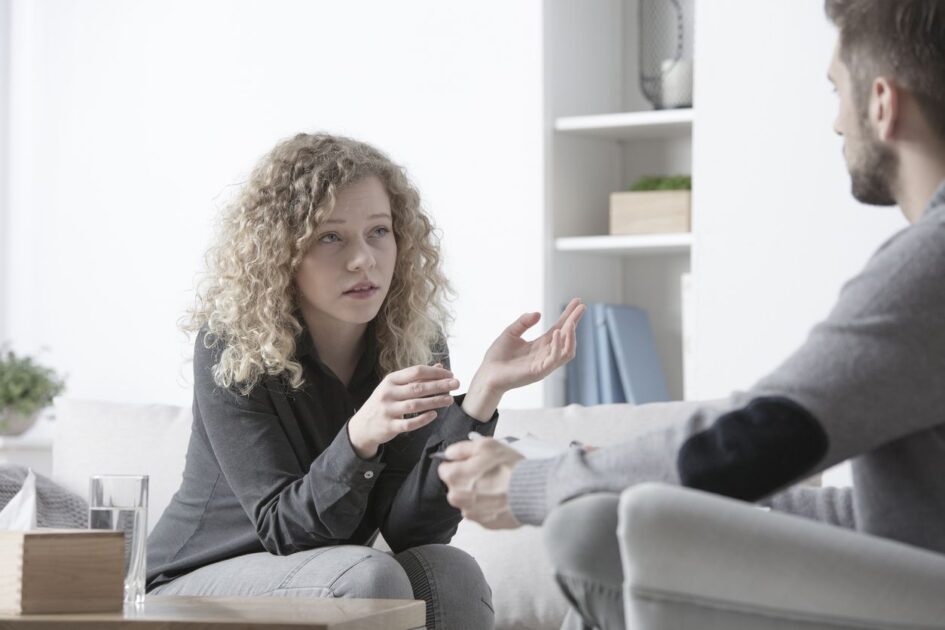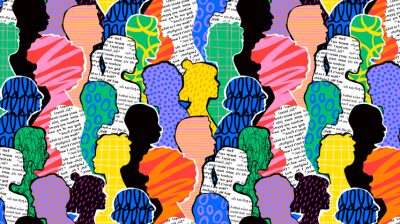What is counselling and how can it help?
Find out how seeing a counsellor could help you

People sometimes experience difficulties in life with which they need a little help and support with. This is where a counsellor can come in, as sometimes it’s easier to talk to a professional about your problems than to family or friends.
Counselling is a type of talking therapy or psychological therapy. It involves talking to a counsellor about your problems. Counsellors are trained to listen sympathetically and can help you deal with any negative thoughts and feelings. They are also skilled at helping you express your worries and concerns.
What is a counsellor?
A counsellor is a professional who has been trained in counselling. Counselling is a type of talk therapy that aims to help people work through any problems or difficulties they may be having in their lives.
Many counsellors specialise in a specific area, such as bereavement, addiction or relationship counselling. However, most counsellors deal with the common problems of anxiety and depression.
Counselling is a safe space to hear yourself think out loud about your life, express how you’re really feeling and discuss concerns and worries with someone who won’t judge you.
Going to counselling
First of all, it can be difficult to look for help if you’ve been having difficulties with your mental health. So well done on taking the first step and doing something proactive about it.
Your first meeting with your counsellor is a chance for you to talk about the difficulties you are having, how they are affecting you and what you would like to get from your counselling sessions. Most counselling sessions last about an hour.
Before your first counselling appointment, have a think about the following questions before you come for your first appointment: What difficulties would you like help with? What do you hope to get from counselling?
How counselling works
A counsellor is trained to listen sympathetically to your problems and suggest ways to resolve issues and change your behaviour. By discussing your concerns with you, the counsellor can help you gain a better understanding of your feelings and actions, as well as suggesting ways to find your own solutions to your problems.
The counsellor may encourage you to identify issues and to take personal responsibility for them if appropriate. They can help you recognise the effects of other people and their actions, and explore alternative ways of coping with them.
It can be a great relief to share your worries and fears with someone who acknowledges your feelings and can help you reach a positive solution. Counselling will help you to discover new ways of coping, making changes and developing new skills and finding what works for you. The main aim of a counsellor is to help you work through various issues so that you can cope with your problems better.
Counselling works best when you get on with and trust the counsellor. It may take you a while to feel comfortable talking to your counsellor, but this is perfectly normal. If you feel that you are not getting on with your counsellor for any reason, ask to see someone else. However, it really is important to give your relationship time before deciding that you want to change counsellors.
What is counselling like?
Every counsellor is different. However, all counsellors should be respectful and give you time to make your own decisions. Different counsellors have different approaches and like to focus on different areas and try different techniques. Let the counsellor know if you are not happy about the approach they are taking.
Sometimes counselling can be emotionally draining if it forces you to look at issues you’d rather ignore. In the long run, exploring these issues might be good for you. However, the counsellor will pull back if they feel that exploring these issues is too much for you.
Confidentiality
Most services will tell you their confidentiality policy, but if they don’t, just ask. Everything you say is kept confidential in a counselling session. The exception to this rule is if the counsellor feels you are in danger of hurting yourself or someone else, or if they learn that someone is harming a person under the age of 18.
How to find a counsellor
A good place to start can be visiting your GP to talk about how you’ve been feeling and ask for a referral to a local counselling service.
However, in most cases, you don’t need a referral to be seen by a counsellor – you can just call and ask for an appointment.
Try doing a google search for services in your area, or use the IACP website which has a list of accredited (fully qualified and certified) counsellors in Ireland.
Some low-cost or free counselling services in Ireland include:
- Jigsaw, providing free counselling, confidential counselling to young people aged 12-25, with centres across Ireland
- Turn2Me.ie is a free online counselling service for young people age 12-27, and adults over 18 – find out more about Turn2Me.ie
Find a list of mental health supports in rural Ireland here.
The HSE provides free counselling for people who have a medical card via their counselling in primary care (CIPC) scheme, and the doctor can refer you to this service.
Counselling in primary care (CIPC)
This service is for people with mild to moderate psychological difficulties. It is a short-term counselling service that provides up to 8 counselling sessions with a professionally qualified and accredited counsellor.
It is a service for medical card holders, who are 18 years of age or over, and who want help with psychological problems that are appropriate for time limited counselling in primary care.
The service is suitable for people who are experiencing certain difficulties such as:
- Depression
- Anxiety
- Panic reactions
- Relationship problems
- Loss issues
- Stress
Traveller Counselling Service
If you are a young Traveller and would like to speak to a counsellor who specifically works with the Travelling Community, the Traveller Counselling Service can support you. The service works from a culturally inclusive framework which respects Traveller culture, identity, values and norms. They provide Traveller culture centred counselling and psychotherapy. They are a Dublin based service but offer counselling both in person and online.
- Landline: 01 868 5761
- Mobile: 086 308 1476
- Email: [email protected]
Feeling overwhelmed and want to talk to someone?
- Get anonymous support 24/7 with our text message support service
- Connect with a trained volunteer who will listen to you, and help you to move forward feeling better
- Whatsapp us now or free-text SPUNOUT to 50808 to begin.
- Find out more about our text message support service
If you are a customer of the 48 or An Post network or cannot get through using the ‘50808’ short code please text HELLO to 086 1800 280 (standard message rates may apply). Some smaller networks do not support short codes like ‘50808’.






